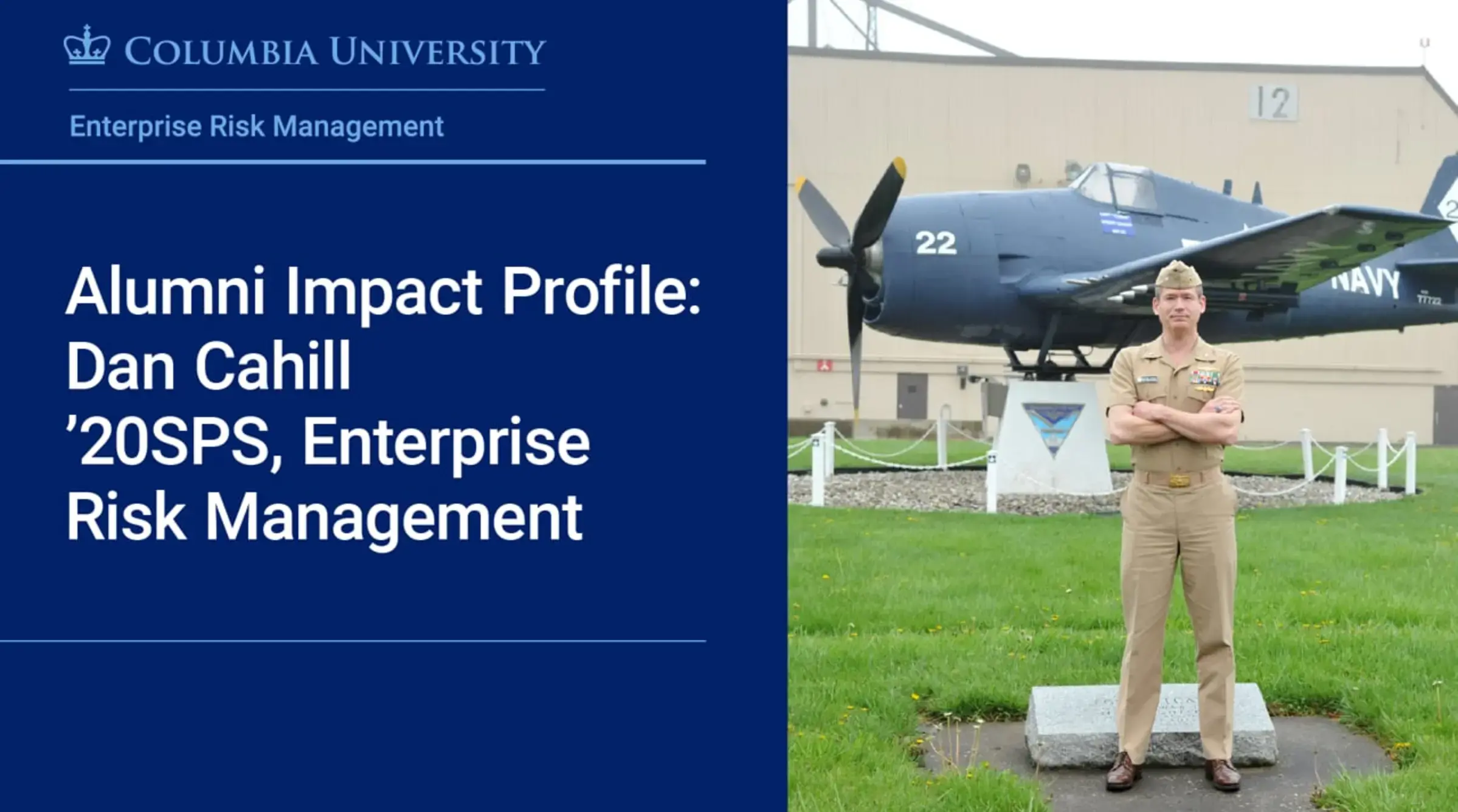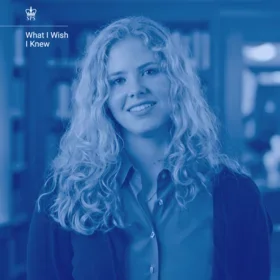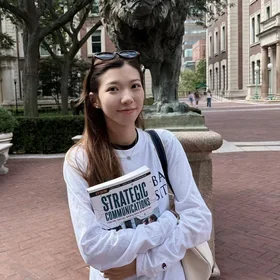Over the course of his 20-plus year career, U.S. Navy Reserve Commander Daniel Cahill has served in top positions in the U.S. military and government. A graduate of the United States Merchant Marine Academy, Cahill’s resume includes roles as a Nuclear Engineer and in cybersecurity for the Naval Inspector General. In a recent interview, he said, “As a military officer, I’m acutely aware of the significance of setting that tone at the top and how important it is for creating a risk conscious culture. So in the same way we identify key risks in the value-based program is the same way we identify the critical information on the operations security side.” Cahill, who recently received a Navy and Marine Corps Commendation Medal in recognition of his leadership on a large-scale risk project, spoke with us about how he’s using Columbia’s Enterprise Risk Management program to his advantage at work.
Why did you choose Columbia’s Enterprise Risk Management program?
I was midway through my government and military career, and I realized that not having a master’s degree was holding me back. I wanted a degree that would help me transition into the private sector. When I saw that Columbia University had an Enterprise Risk Management program, it seemed like a great fit.
Columbia is a highly prestigious school, and the flexibility of being able to go to classes at night aligned with my job in government and the military. It was the perfect balance of work and graduate school.
What makes this program so valuable?
Columbia’s ERM curriculum allows you to not only learn the theory of risk, but when you leave the program, you can immediately apply it. It’s a professional degree that prepares you to leverage the tools and strategies you learn, whether it’s in the C-suite of a corporation, in a large enterprise, in government, or in the military.
When I first got interested in the ERM program, it was when I was assigned to the Navy Inspector General. I had a highly risk-oriented position—more like a job you’d see in the private sector than in the military. I started at Columbia while at that job, and my first class was value-based ERM. I was instantly able to apply what I was learning to my job, where I was tasked with identifying and addressing risks and making recommendations on how those risks could be mitigated.
The way you do that is by quantifying risk, and this is what makes value-based ERM different from other ERM approaches. With quantifiable data, it’s easier to make decisions and see what the quantitative impact is going to be. I am a former nuclear engineer and come from a technical background so this made it easy for me to digest and apply decisions.
Another key feature of Columbia’s ERM program that sets it apart is this: you learn that if you fail, that failure is most likely going to be related to your strategy. As a military officer, I am acutely aware of how important strategy is. Value-based ERM really enforces that because of its quantitative approach.
You won a Navy and Marine Corps Commendation Medal; can you share what role ERM played?
While I was getting my degree, I was serving as Operations Officer for a Navy unit. I was tasked with developing a team of reservists to conduct operations security assessments for the Navy. This involves making sure that information does not get into the wrong hands. For instance, if an adversary knows where you’re going to be and when you’re going to be there, that can cause problems. Or if an adversary knows what the capabilities of a weapon system are and how to defeat it, that poses a significant problem. So, operations security’s goal is to identify critical information so that it can be properly protected.
I found that the value-based ERM process was similar to the operations security process. This involved identifying critical information, analyzing the threats and vulnerabilities in the system, assessing risks, and then applying counter measures. I was also able to train my people on how to look at risk and do proper assessments. It was extremely rewarding; we created a team to provide risk-based services for over 65 war ships and 35,000 sailors. The goal was to ensure that they could safely deploy into harm’s way while successfully protecting critical information. A lot of what I brought to the challenge was based on what I learned at Columbia University’s ERM program. For this effort, I was awarded the Navy and Marine Corps Commendation Medal by the Secretary of the Navy.
Dan noted two key takeaways about this experience:
- There was significant similarity in the process required for the job and what he learned at Columbia. As Dan put it, “If everything is important, nothing is important. So, the way we evaluate risks in the value-based ERM program is the same way we evaluate only the critical information on the operations security side for the Navy.”
- The second theme throughout the ERM program was the tone at the top. Dan added, “As a military officer, I’m acutely aware of the importance of setting the tone at the top. This is critical in creating a risk-conscious culture. It was easy for me to apply because of the similarities in the Navy and the value-based ERM program at Columbia."
What was your impression of the professors at Columbia?
If I was starting the master’s program in ERM again, I would probably not schedule two classes, one after the other, in a single evening. The reason? The classes are so engaging, so interesting, and the professors so dynamic, after just about every class I would stick around and continue the discussion with those professors. But if I had to go to my next class, I missed out on what was a magical part of the experience. That speaks to the quality of the professors and how well they know their trade. They are intent on giving you that base-level knowledge, as well as the tools to ask the right questions. At Columbia, you are learning from experts in the field of ERM, and they take the time to teach you, sometimes in impromptu after-class discussions. I can’t say enough for the Columbia faculty.
What was your experience with fellow Columbia students?
It was an amazing international experience. Just about every class has a diverse number of foreign students. Also, each class has group projects. We discovered how risk is looked at in our respective countries, so the learning provided insights about approaches from cultures different from my own, how culture impacts the way we look at risk, and how we communicate on these issues. The domestic students were people who were highly accomplished in their respective fields. Most had corporate experience, and they were bringing that value-add to class.
Did you get the support you needed at Columbia?
I had a pretty demanding schedule: a government and military career, along with a master’s program in the evenings. But whenever I ran into a problem with scheduling a class or making sure that I could graduate on time, I just called my advisor or the administrators, and they made things work for me. They were extremely accommodating; I can’t say enough great things!
What’s next for you?
I have just over two years left in my government and military career, and then I plan on transitioning to the private sector. I have great relationships with my professors and can reach out to my Columbia network, which is a huge advantage. I also have access to Columbia’s Continuing Education Events that are part of SPS and the ERM program. Even though I’m still in government and the military, I’m plugged into the Columbia community which will help me get to the next step in my career.
What would you say to someone considering going for a master’s degree at Columbia?
For me, the biggest sacrifice was going to be my time. So, I wanted to make sure the degree and the source of that degree were the right fit. If I was going to set my sights on a job, either in the government or private sector, I wanted to know that when people looked at my degree, they were going to recognize it and know its value. Columbia’s reputation is respected worldwide. That was important to me because I wanted to have every advantage possible to achieve success in my next position. I knew that having the Columbia name on my resume was going to help me accomplish my career goals.



